AT&T warns exclusivity for 'a number of attractive handsets' will end
Filed late last Friday, the 10Q from AT&T was interpreted by Steven Fox, analyst with CLSA, to mean that the wireless carrier is attempting to prepare investors for the end of exclusivity of the iPhone. He noted the addition of "significant new language about exclusivity," which he said suggests Apple could add Verizon as a carrier in the U.S. by early 2011.
"Offering a number of attractive handsets on an exclusive basis distinguishes us from our competitors," AT&T's filing reads. "As these exclusivity arrangements end, we expect to continue to offer such handsets (based on historical industry practice), and we believe our service plan offerings will help to retain our customers by providing incentives not to move to a new carrier."
AT&T's statements are an effort to ensure investors that the expiration of exclusivity agreements will not spell doom for the company. Of course, the biggest exclusive of all for AT&T is the iPhone, which has only been available on one carrier in the U.S. since the device first launched in 2007.
"Although exclusivity arrangements are important to us, such arrangements may not provide a competitive advantage over time, as the industry continues to introduce new devices and services," the filing reads. "Also, while the expiration of any of our current exclusivity arrangements could increase churn and reduce postpaid customer additions, we do not expect any such terminations to have a material negative impact on our Wireless segment income, consolidated operating margin or our cash from operations."
While the new statements are intriguing, Fox's conclusion is speculation at most, as neither Apple nor AT&T have revealed the terms of their current agreement publicly.
But it wouldn't be the first time AT&T has spoken of a post-exclusivity world, as earlier this year, one of the company's executives said he wasn't concerned about the iPhone becoming available on other carriers. Ralph de la Vega, president and CEO of AT&T's Mobility and Consumer Markets division, downplayed the effect the loss of exclusivity would have on business.
De la Vega said that his company's family talk and business discount plans are "sticky" and keep customers with the carrier, regardless of options from other providers. He believes AT&T will retain iPhone users even if Apple's immensely popular handset becomes available elsewhere.
Rumors of a CDMA iPhone compatible with the Verizon network in the U.S. have persisted for years, but the latest reports have suggested such a device could debut in January 2011. Those reports indicated that manufacturing of the hardware is set to begin late this year.
Apple and AT&T originally agreed to a 5 year deal through 2012 for exclusive access to the iPhone. However, contracts can be amended, canceled or breached due to a variety of factors.
The relationship between Apple and AT&T has been a controversial one, as some customers have been vocal in their displeasure with AT&T's service. One recent behind-the-scenes report suggested that Apple nearly ended its partnership with AT&T multiple times over a myriad of issues, as Apple was unwilling to restrict the Internet capabilities of its phone, and AT&T struggled to meet the overwhelming pressure the smartphone placed on his network.
 Sam Oliver
Sam Oliver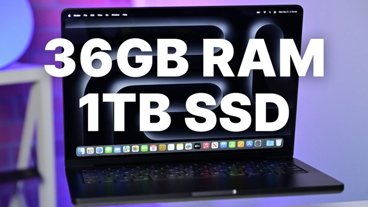



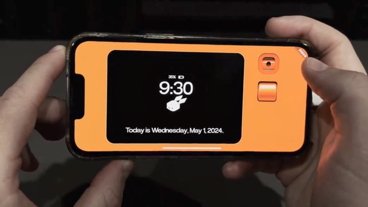







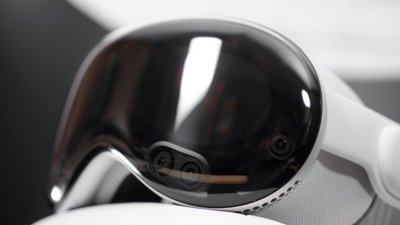
 Wesley Hilliard
Wesley Hilliard
 William Gallagher
William Gallagher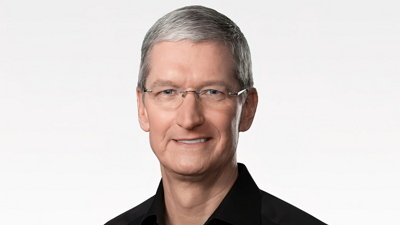
 Andrew Orr
Andrew Orr
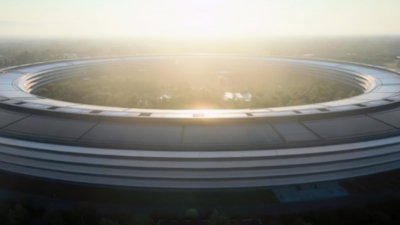
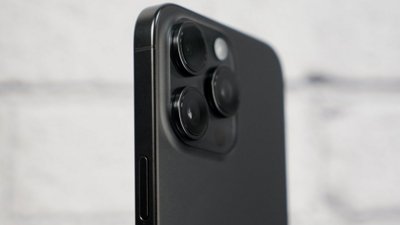
 Malcolm Owen
Malcolm Owen










75 Comments
Now we can believe the Verizon rumors.
Just pull it out of the hat already
The most 'attractive handset' being (of course)... wait for it... Apple's iPhone.
I know what that means...
NOTHING!
I will believe it when an Apple exec is holding a press conference with a new carrier exec.
A few months ago, I would have said Vzw will NOT get an iphone until LTE is going strong and there would never be a CDMA version.
However, with the higher ETF and new data packages on AT&T, makes me think maybe Apple is going to go ahead with the CDMA iphone.
What I would love to see: iphone, droid X, motorola droid II, incredible, evo release on ALL 4 US networks.
I for one, Love AT&T. I worked at Vzw and you couldn't pay me to use them again. 3G so slow it makes boost mobile look good and their extra 3 bucks for visual voicemail. No thanks.
I don't care if vzw gets the iPhone or not. I honestly hope sprint and t-mobile get it before vzw, just because. I will stay with my Really Fast 3.5G connection and my WONDERFUL roll-over, AT&T's awesome customer support and my grandfathered unlimited data.